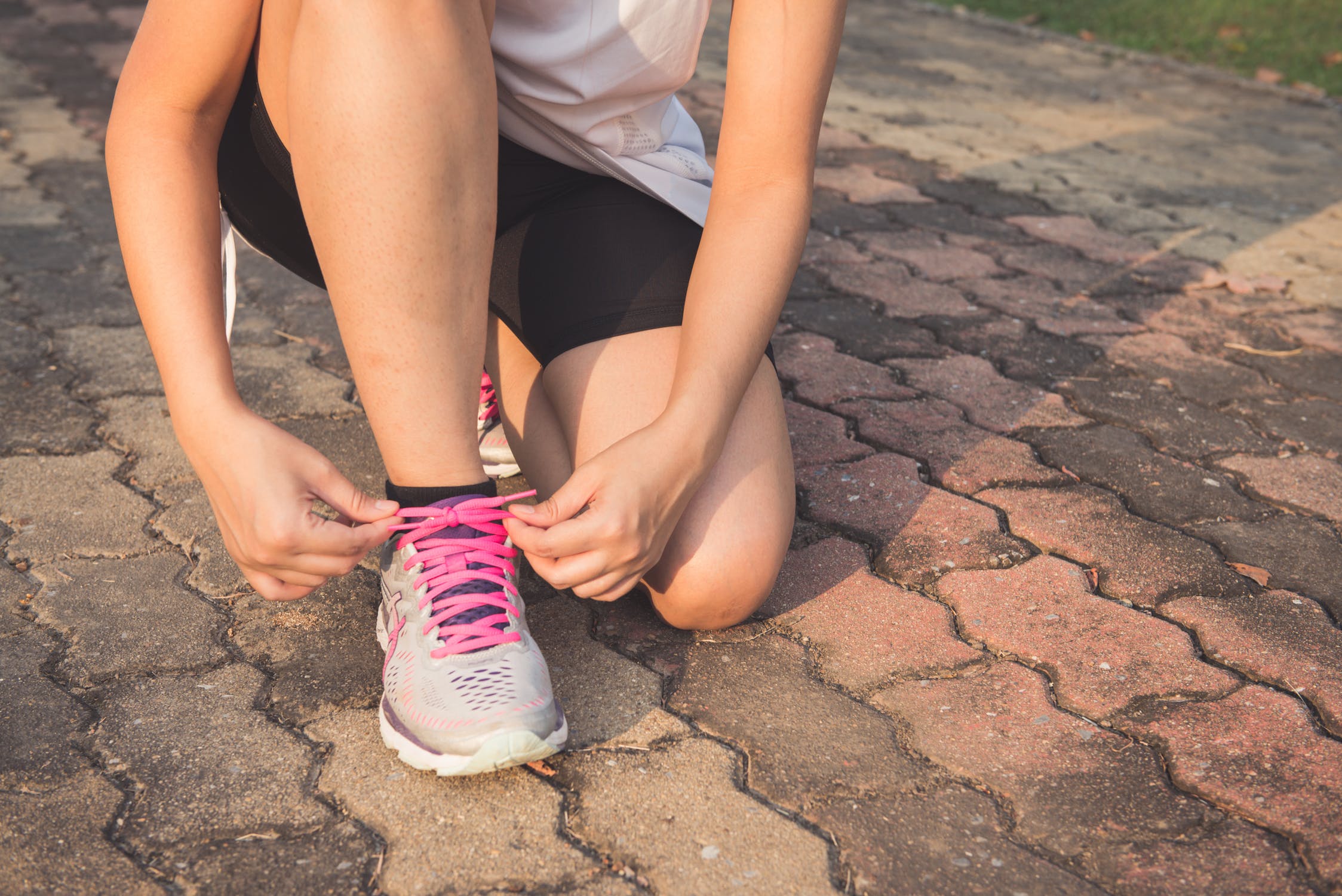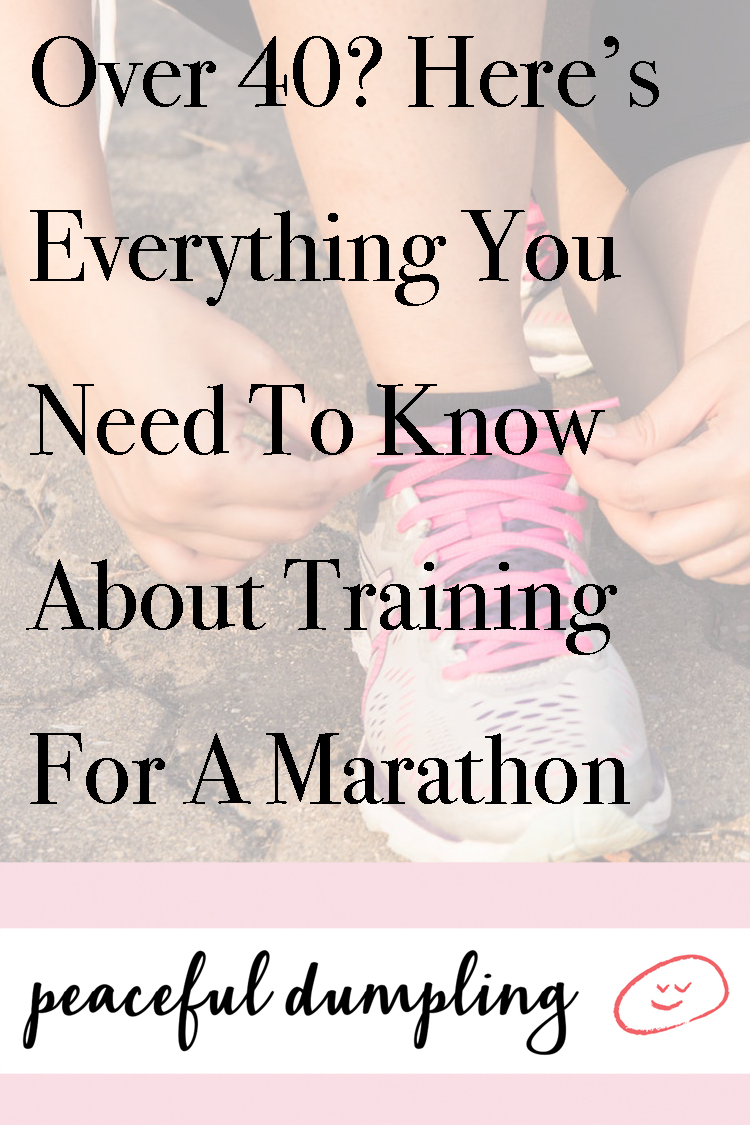They say 40 is the new 30, and that’s not just a bunch of hyperbole. The average life expectancy is rising worldwide, and experts project that it will reach over 90 years old by 2030 in some countries. The life expectancy at birth didn’t exceed 40 years old until the late 18th century, and the 1900 world average was just 31 years old, compared with 71.5 years old in 2014. In other words, we’re becoming healthier as a species, and we can expect to live long and prosper, at least for the foreseeable future.
With all of this in mind, it’s no surprise that more adults are running more marathons. Want some more facts? You got it. Nearly 600,000 people run marathons annually, and the average age of the marathon runner is 38.7 years old. But, despite these numbers, marathon training in your 40s isn’t necessarily a piece of cake. It requires some intense training and a little bit more self-care in the physical health department to prevent injuries, strains and undue physical stress.

9 Tips for Marathon Training in Your 40s
- Take an Enzyme — You may have heard of digestive enzymes — the supplements that help your stomach break down food for better digestive health — but did you know that there are whole-body enzymes that are great for runners? Systemic enzymes, like serrapeptase enzymes, help support tissue healing and cardiovascular health, which means they can help you bounce back fast if you’re sore or sluggish while training. When you’re older, your muscles take longer to repair themselves after rigorous exercise, which means you’re at a higher risk for developing pulled muscles, knee issues and aches. Serrapeptase enzymes are used throughout the world to treat inflammation, too, so they’re ideal for athletes.
- Drink More Water — Rule No. 1 for any marathon runner is to stay hydrated, but this is actually extra-important for runners over 40. That’s because once you’re over the hill, your kidneys are less efficient in terms of water conservation. Adult men should drink at least 13 cups of water per day, while adult women should consume about 9. It’s extremely important that you stay hydrated before, during and after runs to prevent dehydration that can cause mild to severe symptoms.
- Care for Your Bones — Another thing that happens when you reach the age of 40 (or age 30 for women) is that your bones deteriorate faster. Most women enter menopause in their 40s, with bone loss speeding up before, during and after menopause. Men aren’t off the hook, though. They also start to experience more loss of bone in their 40s and into their 50s. For that reason, it’s important that you’re considerate of bone health. Be sure you get 1,000 milligrams of calcium and 600 IU per day of vitamin D per day through food or supplements to prevent injury.
- Train with a Buddy — One of the best parts about marathon running (and running as a whole) is that it connects people from all walks of life through a shared interest. More and more runner’s clubs are popping up in cities far and wide, so it’s easy for runners to find a supportive group of friends and fellow marathoners for group training. Buddying up will help you stay on track so you meet your goals. It may also help those who have struggled to make friends at this juncture in life.
- Get a Physical — Before you embark on any brand-new athletic endeavor, it’s important that you see a doctor and get a physical. When you’re engaging in any activity that boosts your heart rate, you’re putting your ticker to work. People with congenital heart problems should only run marathons under close monitoring of a doctor. Although fatalities are rare in marathon running, the majority of deaths associated with the sport occurred in males over 40 who showed signs of coronary artery disease.
- Start Slow — In your 20s, you might have been able to run a 5K without so much as a hamstring stretch. But since then, your body has become less flexible, which means its more susceptible to injury. That’s because less elastic muscles are weaker and are more likely to tear or strain with awkward or sudden movements. It’s important that you work on improving flexibility before you embark on any major physical endeavor. Start with gentler stretches in the water or with yoga.
- Get the Right Shoes — We already know that, as we age, our muscles and bones become weaker. Another thing that happens as we get older is that our feet are more susceptible to developing pain points, bunions and plantar warts. A good pair of running shoes will help prevent these issues by eliminating pressure points. Of course, the right running shoes will also help protect your bones and muscles while they’re at it. A supportive pair of kicks should support all of your weight while preventing back and knee pain. Where possible, spend time running on soft surfaces (in facilities with sport floors or on grass, for example) so that you’re not, quite literally, pounding the pavement and straining the joints.
- Switch things Up — Since older bones and muscles require longer healing times, it’s important that you don’t put them under too much stress all at once. After 40, it’s especially vital to give your body extra recovery time to fully heal and revitalize after a big athletic effort. A great way to give the body some rest without challenging your fitness goals is to cross-train. Rather than running every day, mix things up by adding in a few days of swimming or yoga to help the muscles heal.
- Work on Strength — At the end of the day, pushing yourself further in marathon training comes down to preparing the body for rigor. One of the simplest ways to do that is to work on strengthening the muscles that are responsible for keeping you going while you run long distances, especially the calves and hip flexors. When these muscles aren’t strong and flexible, they can cause muscle pulls. Low calf strength means less power and less speed.

Are you over 40 and a runner? What are your tips for staying injury-free?
Also by Stacey: Clear Your Mind & Clean Your Home With These 6 Purifying Essential Oils
Related: I Used To Do No Exercise Other Than Walking. Here’s How I Got To Running 5Ks
It’s Marathon Season! 5 Training Tips for Long Distance Running
